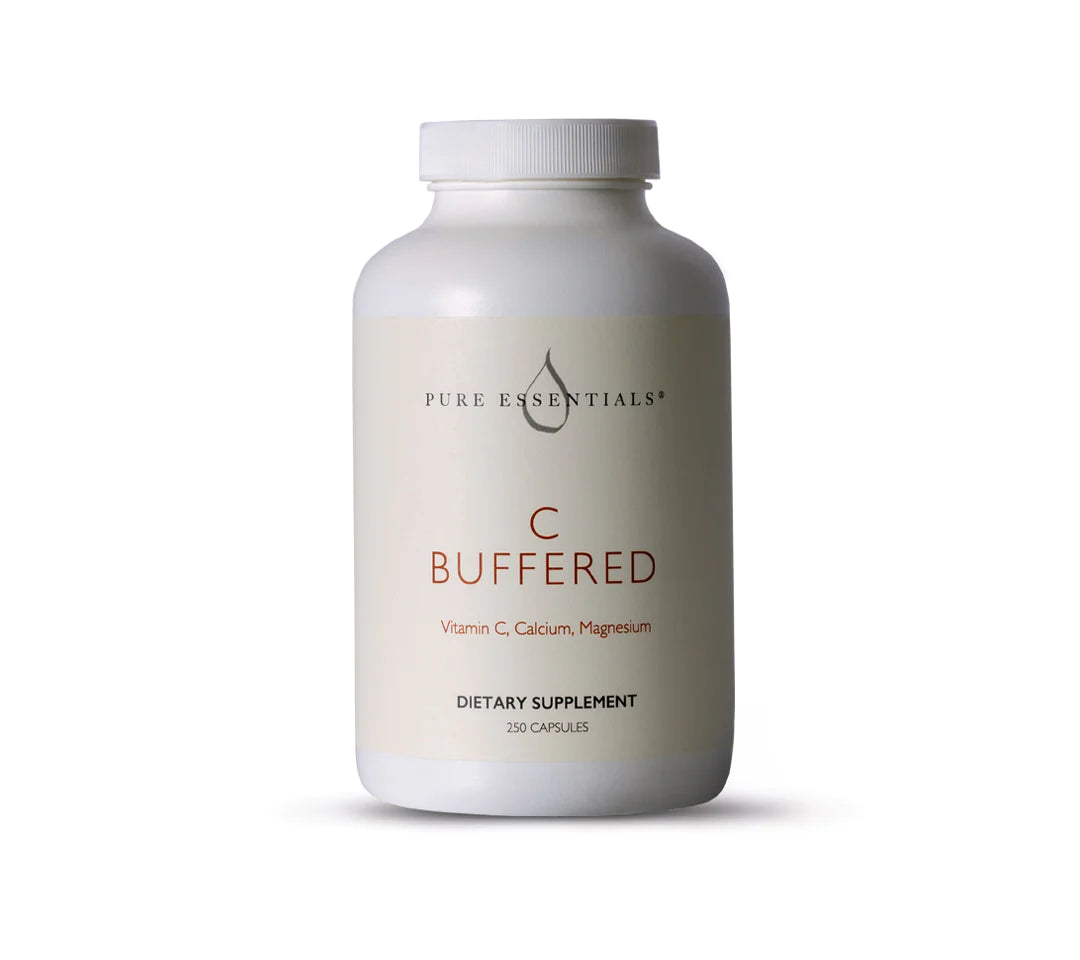The supplement industry has witnessed a recent and rapid rise of collagen promotion, capturing the attention of health enthusiasts and beauty aficionados alike…and a lot of consumers.
Collagen supplements are often praised for their numerous benefits, which may seem almost too good to be true. From promising radiant skin to relieving joint discomfort, they promote their all-natural ingredients and a range of health advantages, all at an affordable price. In an era filled with questionable promises and wellness trends, it's essential to discern between fact and fiction when considering collagen supplementation.
Let’s explore the world of collagen and shed light on what it is, what it does, and how it’s created and synthesized.
What is collagen?
Collagen, a fibrous protein, plays a vital role in offering structure, strength, and support to various tissues, organs, and systems in our body. It forms the foundation of our skin, muscles, tendons, ligaments, and more. In fact, collagen accounts for nearly 33% of all proteins present in the human body and exists in 28 distinct types, with the majority originating from types I to III.
What are the types of collagen?
- Type I - Type I collagen, with its triple helix structure, reinforces skin, tendons, and bone connections while also aiding in skin elasticity, bone strength, and wound healing.
- Type II - Type II collagen, found mainly in cartilage, imparts elasticity and shock absorption, providing a soft cushion that promotes smooth and comfortable joint movement.
-
Type III - Type III collagen, referred to as reticular collagen, is located in muscles, blood vessels, and select organs. It serves as the body’s internal support framework, offering structural support to blood vessel walls and contributing to specific organ architecture.
What role does collagen play in the body?
Collagen serves as a structural framework for tissues and organs becoming the biological glue to keeping everything in place. Here are some of the roles collagen plays in our bodies:
- Skin: The skin relies on collagen for strength and elasticity, forming its foundation and giving it a firm and bouncy appearance.
- Bones: Collagen strengthens bones by interacting with minerals, boosting their stiffness and forming a key part of the bone matrix, enhancing toughness and load-bearing ability.
- Joints: Collagen within cartilage facilitates painless arm and leg movement. Its fibers enhance compressive strength, absorb energy, and provide joint cushioning and lubrication.
-
Tendons & Ligaments: Collagen in tendons and ligaments act like a stretchy rubber band, allowing movement while maintaining stability and ensuring structural stability and controlled motion.
Collagen synthesis: no, you can't drink your collagen.
As we age, concerns like joint discomfort, skin aging, and hair loss arise due to declining collagen production. While collagen is crucial, we should approach supplementation for optimal synthesis with caution. Boosting collagen isn't as simple as sipping a magic elixir. Collagen production involves amino acids, enzymes, co-factors, and vitamin C, creating essential strands for skin, hair, nails, and tissues.
Collagen supplements offer collagen peptides for easier absorption, but this process faces hurdles. Collagen's long chains must break into smaller peptides in the digestive system, and not all survive due to stomach acidity and enzymes.
While some studies suggest skin, hair, and nail benefits with over 15 grams of daily collagen intake, it's unclear if they're from collagen or added ingredients.
Fortunately, there are other ways to increase collagen production and synthesis through supplementation, diet, and lifestyle changes.
How to promote natural collagen production?
The Vitamin C Connection
Vitamin C is vital for collagen synthesis. Enzymes weaving collagen into its triple-helix structure depend on it as a cofactor, like a director guiding performers. Nature offers various vitamin C sources, including citrus fruits, bell peppers, strawberries, and broccoli. Including these foods in your diet provides the tools for internal collagen support.
Our Pure Essentials C-Buffered Powder delivers the many benefits associated with an advanced vitamin C formula. Promoting collagen biosynthesis also aids in wound healing and contributes to brain health and heart disease prevention.
Vitamin A & Skin Health
Vitamin A is essential for skin health, promoting cell regeneration and vitality. It comes in two forms: retinoids and beta-carotene. Retinoids, found in animal products like liver and dairy, directly support collagen synthesis, benefiting the skin. Beta-carotene, found in colorful fruits and veggies like carrots and sweet potatoes, serves as a precursor that your body can convert into vitamin A.
Vitamin E Protection
Vitamin E acts as a guardian for collagen, protecting it from free radicals that can harm and break down collagen fibers. This helps maintain supple and youthful skin. For more vitamin E, consider nuts like almonds, sunflower seeds, spinach, avocado, and trout, which provide the nourishment your skin needs.
Vitamin B Versatility
B vitamins each play their role in skin health. Vitamin B3 (niacin) maintains healthy skin, while vitamin B6 supports collagen production, collectively ensuring skin strength. Biotin, another B vitamin, is crucial for producing keratin, the protein for hair and nails.
Our Pure Essentials #2 Multivitamin has a complete B complex of 14 vitamins including vitamins E and A that can aid in the natural production of collagen.
Zinc and Collagen Formation
Zinc is a vital catalyst for collagen synthesis, acting as a director for essential enzymes. Including zinc-rich foods like oysters, beef, pumpkin seeds, and chickpeas in your diet ensures your collagen team operates smoothly.
Our Pure Essentials Ultra Zinc offers a special blend of fully soluble, energized zinc that not only prevents deficiency but also provides maximum immune support for people of all ages.
Omega-3 Fatty Acids and Inflammation
Omega-3 fatty acids are the peacekeepers of collagen production, reducing inflammation to create an ideal environment for synthesis. Sources like fatty fish (salmon, trout, sardines) and flaxseeds promote collagen-friendly nutrition and overall well-being.
What lifestyle changes can help collagen production?
From staying hydrated to managing stress, lifestyle choices also influence your body's ability to produce collagen naturally. Here are some simple ways to support collagen production naturally:
- Drink water - Drinking plenty of water supports skin hydration, which is essential for maintaining collagen's structure and elasticity.
- Get enough sleep - Prioritize quality sleep, as it's during sleep that your body repairs and regenerates tissues, including collagen.
- Manage your stress levels - Chronic stress can lead to collagen breakdown. Engage in stress-reduction techniques like meditation, yoga, and deep breathing.
-
Exercise regularly - Regular exercise improves blood circulation, delivering nutrients needed for collagen synthesis to your skin and tissues.
As we conclude our exploration of collagen, we've learned about its vital role in our bodies. Collagen provides structure and resilience, supporting our skin's suppleness and joint flexibility. Whether you're enjoying citrus water, a salad, or yoga, remember that healthy aging isn't a quick fix. It's a journey guided by science, nutrition, and mindfulness, celebrating the interplay of collagen and graceful aging.






